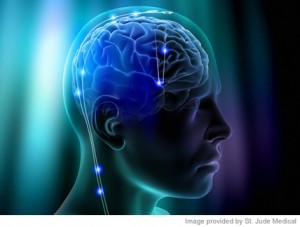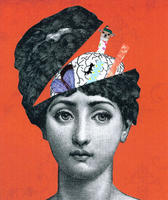 Even with the best of available treatments, over a third of patients with depression may not achieve a satisfactory antidepressant response. Deep brain stimulation (DBS), a form of targeted electrical stimulation in the brain via implanted electrodes, is now undergoing careful testing to determine whether it could play a role in the treatment of patients who have not sufficiently improved during more traditional forms of treatment. [continue reading…]
Even with the best of available treatments, over a third of patients with depression may not achieve a satisfactory antidepressant response. Deep brain stimulation (DBS), a form of targeted electrical stimulation in the brain via implanted electrodes, is now undergoing careful testing to determine whether it could play a role in the treatment of patients who have not sufficiently improved during more traditional forms of treatment. [continue reading…]
Depression
It should be no surprise that employees with depression have higher costs related to short-term disability and absenteeism-even after receiving antidepressant therapy, reports a study in the February Journal of Occupational and Environmental Medicine, official publication of the American College of Occupational and Environmental Medicine (ACOEM). [continue reading…]
Psychodynamic psychotherapy is effective for a wide range of mental health symptoms, including depression, anxiety, panic and stress-related physical ailments, and the benefits of the therapy grow after treatment has ended, according to new research published by the American Psychological Association.
Psychodynamic therapy focuses on the psychological roots of emotional suffering. Its hallmarks are self-reflection and self-examination, and the use of the relationship between therapist and patient as a window into problematic relationship patterns in the patient’s life. Its goal is not only to alleviate the most obvious symptoms but to help people lead healthier lives. [continue reading…]

Image: Creative Commons
New research shows that migraine and depression may share a strong genetic component. The research is published in the January 13, 2010, online issue of Neurology®, the medical journal of the American Academy of Neurology. [continue reading…]
